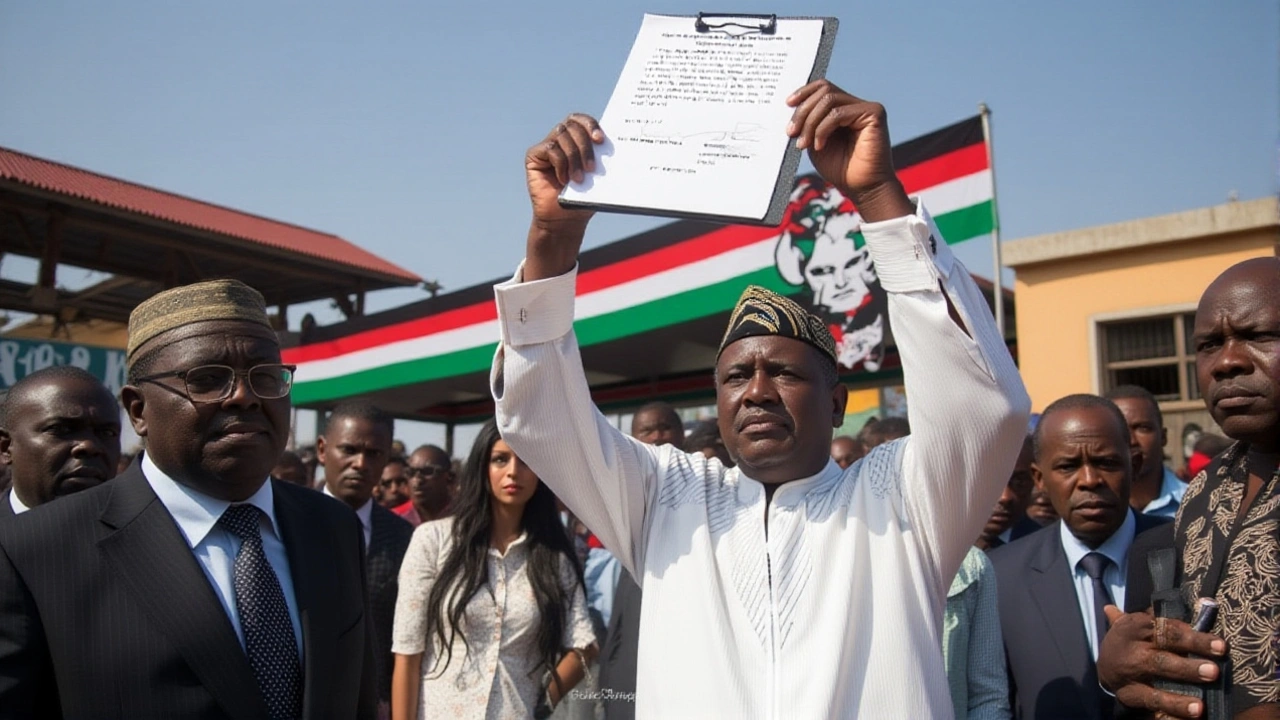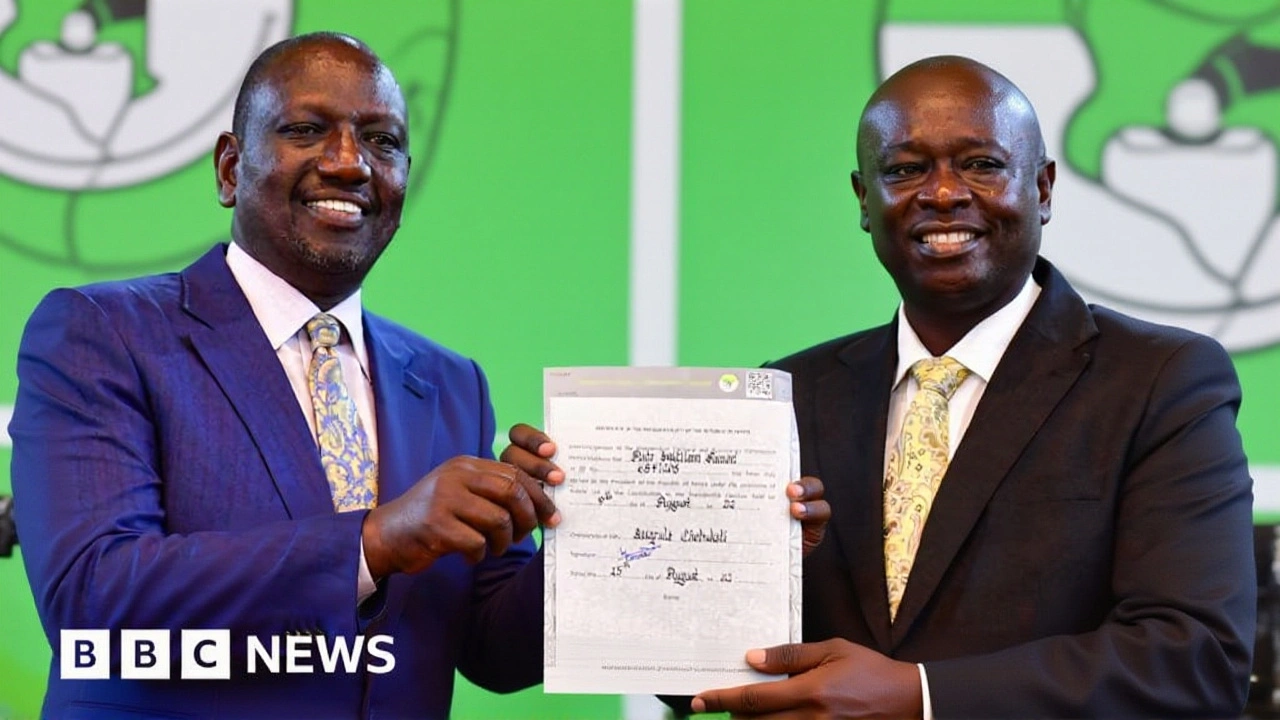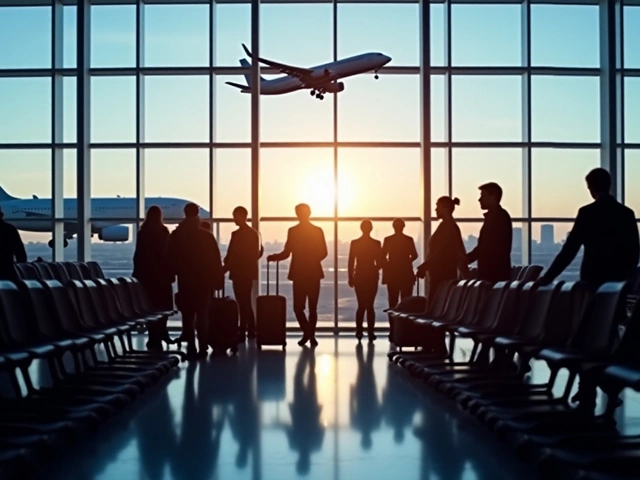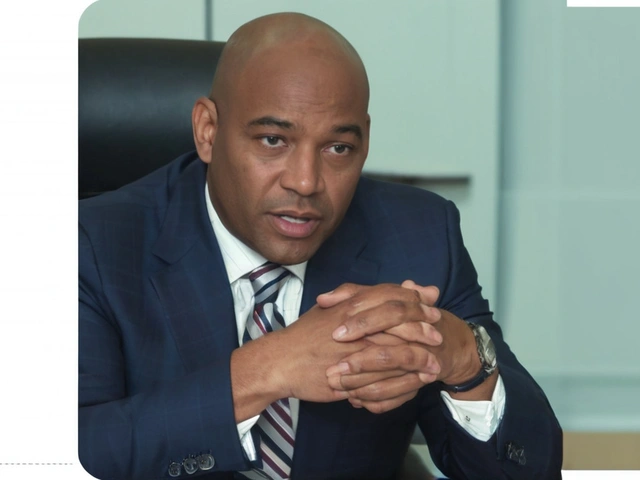
When Raila Odinga raised his hand at Uhuru Park on Jan 30, 2018, the nation barely had time to gasp before the lights went out on three of Kenya’s biggest TV channels. The shutdown, ordered by Fred Matiang'i, then‑Interior Cabinet Secretary, was billed as a move to stop "the death of thousands of innocent Kenyans" – a claim that set off an urgent legal showdown.
Background: A fractured post‑election landscape
The swearing‑in didn’t happen in a vacuum. After the disputed August 2017 presidential vote, which saw Uhuru Kenyatta declared the winner, the opposition coalition National Super Alliance (NASA) refused to accept the result. Their leader, Odinga, announced a parallel inauguration, branding himself the "People’s President" and calling for a new election.
Police warned that the gathering at the capital’s Uhuru Park was illegal, yet thousands of NASA supporters still marched in, waving orange flags. The ceremony was largely peaceful; the only tension came from the state’s fear of a media‑driven flashpoint.
The broadcast blackout kicks in
At roughly 10:00 a.m., the Communications Authority of Kenya (CA), acting on directives from the Ministry of Interior, pulled the plug on free‑to‑air signals of three independent broadcasters – Citizen TV (owned by Royal Media Services), NTV (Nation Media Group) and KTN News (The Standard Media Group). Radio stations under Royal Media Services, including Inooro FM, were silenced too.
"If we allow live coverage, we risk mass unrest that could kill thousands," Matiang'i told reporters, calling the ceremony a treasonous act. The government’s language was stark, framing the media’s attempt to broadcast as a potential catalyst for violence.
- 10:00 a.m. – CA shuts down Citizen TV, NTV, KTN.
- 10:15 a.m. – Police set up barricades around the TV towers.
- 10:30 a.m. – Opposition activists file a petition at the High Court.
Legal battle: High Court intervenes
Activist Okiya Omtatah lodged a petition arguing that the blackout violated constitutional freedoms of expression and information. On Jan 31, Justice Chacha Mwita issued a sweeping order demanding the immediate restoration of the three stations’ signals, pending a full hearing.
"I am satisfied that the petition raises serious legal and constitutional issues that require immediate intervention," Mwita wrote, explicitly forbidding any further interference by Matiang'i, the CA, or any other state body.
Despite the court’s clear directive, the CA stalled. Technical glitches were cited, but many observers saw it as deliberate resistance. The stations stayed off the free‑to‑air airwaves for days, with only a handful of subscribers able to watch via paid satellite packages.
Gradual restoration and the final comeback
Pressure mounted as civil society groups, foreign embassies and press freedom NGOs condemned the prolonged silence. By Feb 5, NTV and KTN managed to resume broadcasting – but only on pay‑TV platforms, leaving most Kenyans in the dark.
Citizen TV and Inooro FM finally flickered back on Feb 8, and by Feb 9 all three channels were fully restored on free‑to‑air frequencies. The two‑week suspension, though technically lifted, left a scar on Kenya’s media landscape.

Implications: Press freedom in a polarized Kenya
The episode illuminated a deeper fault line: an embattled government willing to weaponise regulatory agencies against dissenting voices. Media watchdogs like Article 19 called the blackout "a chilling precedent for future electoral disputes".
For ordinary Kenyans, the incident reinforced a familiar narrative – that politics can eclipse basic rights. Yet the swift court response also demonstrated that Kenya’s judiciary can act as a counter‑balance, at least when activists are ready to push the legal envelope.
What comes next?
Looking ahead, the CA has pledged to review its emergency protocols, but critics say real reform will require legislative change. Meanwhile, both the ruling Jubilee coalition and NASA are nursing bruises that could shape the upcoming 2022 election cycle.
Frequently Asked Questions
Why did the government claim the broadcast could cause violence?
Matiang'i argued that showing the live swearing‑in would inflame crowds already on edge after weeks of post‑election tension, potentially sparking clashes between supporters of the two leaders.
Which courts handled the case and what was the outcome?
The High Court in Nairobi, presided over by Justice Chacha Mwita, ordered the immediate restoration of the three stations’ free‑to‑air signals while the case filed by activist Okiya Omtatah was heard.
How long were the stations off the air?
The blackout began on Jan 30, 2018, and full free‑to‑air service was restored on Feb 9, 2018 – a total of ten days, with staggered returns for each channel.
What does this incident mean for press freedom in Kenya?
It highlights the vulnerability of media outlets to political pressure, but also shows that judicial interventions can temporarily check executive overreach. Long‑term safeguards remain a work in progress.
Who were the main parties involved in the shutdown?
Key actors included Interior Cabinet Secretary Fred Matiang'i, the Communications Authority of Kenya, the three media groups (Royal Media Services, Nation Media Group, The Standard Media Group) and the High Court judge Chacha Mwita.
20 Comments
Write a comment
More Articles

Celebrated Actress and Comedian Erica Ash Dies at 46 After Battle With Cancer
Erica Ash, known for her dynamic roles in 'Survivor's Remorse', 'Real Husbands of Hollywood', and 'MADtv', has passed away at 46 following a protracted struggle with cancer. Ash's notable work includes her portrayal of M-Chuck Calloway and appearances in numerous films. Her family honors her memory by encouraging donations to cancer foundations.

Severe Weather Forces Mass Flight Cancellations at Barcelona Airport
A recent storm hit Barcelona, causing significant disruptions at El Prat airport with at least 50 flights being cancelled or delayed. The severe weather comes just days after deadly floods hit Valencia, claiming over 200 lives. Furthermore, flights were rerouted, and public transportation was affected, highlighting the widespread impact of the storm.

Viral Video of President Tinubu: Old Footage Misleading Public, Says Aide
A video showing President Bola Tinubu pleading with Nigerians has gone viral, leading to mixed reactions. However, presidential aide Bayo Onanuga has clarified that the video is old and has been taken out of context. Despite this, the video has ignited debates concerning Tinubu's leadership and policies, reflecting the nation's current sentiment.
Atish Gupta
October 7, 2025 AT 03:14Wow, the Kenyan state's decision to hijack the airwaves was a textbook case of regulatory overreach, leveraging emergency protocols as a political weapon. The interplay between constitutional freedom of expression and executive authority creates a fascinating tension, especially when you consider the Communications Authority's mandate versus the High Court's injunction. In media studies jargon, we can label this a 'state‑induced information blackout' that risks eroding public trust. Yet, the swift judicial intervention demonstrates a functional, albeit fragile, check‑and‑balance system. It's a reminder that even in contested elections, institutional resilience can surface, provided civil society and the legal community stay vigilant.